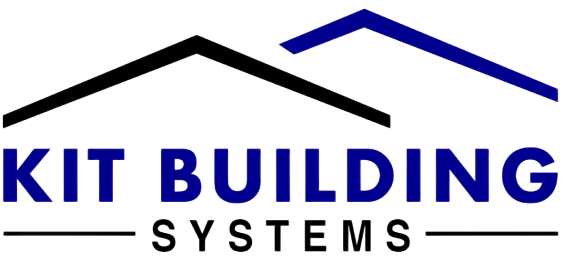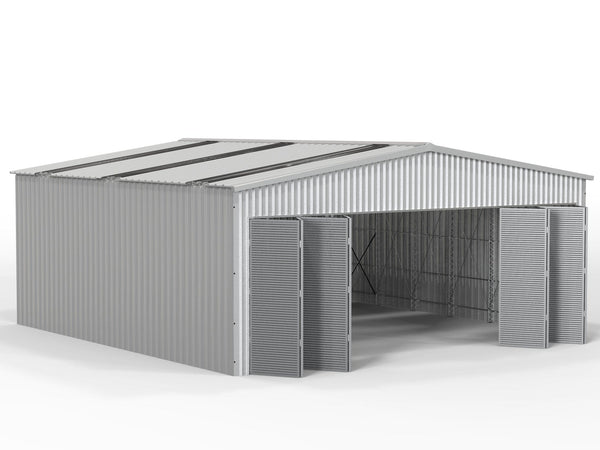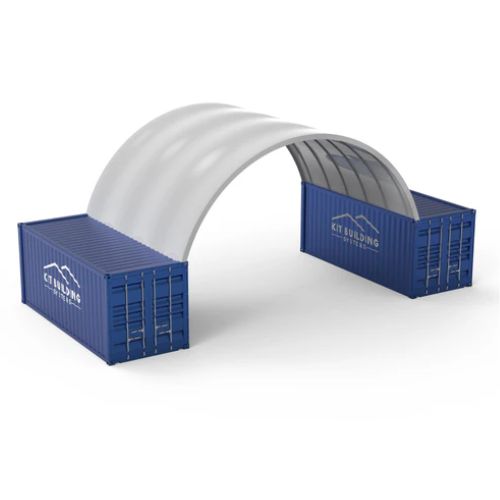
How to Choose the Right Agricultural Building for Your Farm
One of the most important decisions you will make when running a farm is selecting the right agricultural building. These structures can play a significant role in the daily operation of your farm. From storing crops and equipment to housing animals, agricultural buildings offer a variety of functions that are crucial for smooth farm operations. Whether you're looking at agricultural buildings for sale in the UK or planning to build one from scratch, this guide will walk you through the key factors to consider.
Understand the Purpose of Your Agricultural Building
Before you start looking at designs or builders, it’s essential to be clear on the purpose of your building. Each farm has different needs, and the type of structure you require will depend on your farm's focus. Here are some common purposes:
- Storage of Equipment: Large tractors, ploughs, and other machinery need a secure and weather-protected space.
- Animal Housing: Whether it’s for cattle, horses, or poultry, animals need comfortable and safe spaces to live.
- Crop Storage: If you’re harvesting grains or vegetables, you’ll need a building that can keep them safe from pests and the elements.
At Kit Buildings, our range of agricultural buildings is versatile and can be customized to meet your specific needs. Whether you need a simple shed or a large barn, having a clear understanding of your building’s purpose will help you make the right decision.
Location and Placement on the Farm
Where you place your agricultural building is just as important as its design and material. The location will determine how efficient your farm operations will be. Here are a few things to consider:
- Access: Ensure the building is easily accessible for vehicles and equipment. You don't want to waste time navigating tight corners or bumpy roads.
- Drainage: The location should be well-drained to prevent water accumulation, which can cause structural damage and make access difficult.
- Proximity to Other Farm Areas: For more efficient farm management, consider placing the building near essential areas like the main farmhouse, fields, or animal enclosures.
Our team at Kit Buildings can help you find the best placement for your agricultural buildings based on your farm layout, ensuring you get the most out of your investment.
Size Matters
The size of the building you choose will depend on what you plan to use it for. Too small, and you won’t have enough space; too large, and you’ll be wasting resources. Consider the following when determining size:
- Current Needs: Are you buying this building to store equipment, house livestock, or store harvested crops? Estimate the space required for these functions.
- Future Expansion: As your farm grows, so will your needs. Plan for future expansion by either leaving space for an extension or choosing a size that will accommodate future requirements.
Size is a critical factor when looking at agricultural buildings for sale in the UK. Kit Buildings offers a wide range of sizes, so you can find the perfect fit for your farm without overspending.
Weather and Environmental Conditions
Agricultural buildings need to withstand the UK’s unpredictable weather. From heavy rainfall to solid winds, your structure must be strong enough to handle the elements. Consider the following:
- Wind Resistance: Ensure the building is constructed to resist high winds, especially if you’re in a particularly windy region.
- Waterproofing: Proper waterproofing is essential, particularly if you're storing crops or machinery. Make sure the roof and walls are designed to keep out moisture.
- Insulation: If you're housing livestock, proper insulation is crucial for their health. Buildings without adequate insulation can lead to cold, uncomfortable animals, which can affect their productivity.
Kit Buildings ensures that all our agricultural buildings are built to withstand the UK climate, so you can have peace of mind knowing your investment is protected.
Planning Permissions and Regulations
Before you go ahead and purchase or construct a building, you’ll need to make sure you comply with local regulations. Some agricultural buildings require planning permission, especially if they are large or in a protected area. Here's what you need to do:
- Check Local Rules: Each region may have different requirements, so it’s essential to contact your local council.
- Apply for Permission: If necessary, submit your plans and wait for approval before starting construction.
- Follow Building Regulations: Even if you don’t need planning permission, make sure your building complies with any applicable regulations, such as those for fire safety and structural integrity.
At Kit Buildings, we understand the importance of getting your paperwork in order. We can guide you through the planning process to ensure that your agricultural buildings for sale in the UK meet all the requirements.
Budget Considerations
Your budget is one of the most important factors in choosing an agricultural building. Costs can vary greatly depending on the material, size, and features you choose. Here’s how to manage your budget effectively:
- Initial Costs: Get a clear estimate of the cost of the building, including delivery and construction.
- Maintenance: Consider the long-term maintenance costs. A cheaper material might cost more in repairs over time.
- Customization: While custom features may be more expensive, they can add value by making the building more suited to your farm’s needs.
Kit Buildings offers flexible options to suit different budgets, ensuring you get the best value for your money when investing in agricultural buildings for sale in the UK.
Ventilation and Lighting
Good ventilation and natural lighting are essential for many agricultural applications, especially if you are housing livestock or storing crops. Here’s why:
- Ventilation: Poor airflow can lead to dampness and mould, which can ruin stored items or harm livestock health. Proper ventilation will keep the air circulating and prevent these issues.
- Natural Lighting: Natural light can reduce your energy costs and provide a healthier environment for animals. Consider including windows or skylights in your building design.
At Kit Buildings, our agricultural buildings can be equipped with ventilation systems and natural lighting features so your building remains functional and comfortable year-round.
Customization and Future-Proofing
Each farm is unique, so your agricultural building should be, too. Customization allows you to design a structure that meets your specific needs, whether it’s adding extra doors, windows, or special storage features. Additionally, consider future-proofing your building:
- Flexible Design: Choose a design that can be easily expanded or modified as your farm grows.
- Energy Efficiency: Consider features like solar panels or insulation to reduce long-term energy costs.
Kit Buildings offers a variety of customizable options, ensuring your agricultural buildings can grow with your farm and provide value for many years.
Conclusion
Choosing the right agricultural building for your farm is a crucial decision that requires careful planning. By considering the building's purpose, material, location, size, and budget, you can make an informed choice that will benefit your farm for years to come. At Kit Buildings, we specialize in offering high-quality, customizable agricultural buildings for sale in the UK that cater to the diverse needs of farmers.
If you’re ready to invest in a building that will support your farm's success, contact Kit Buildings today. Let us help you find the perfect structure for your agricultural needs.



